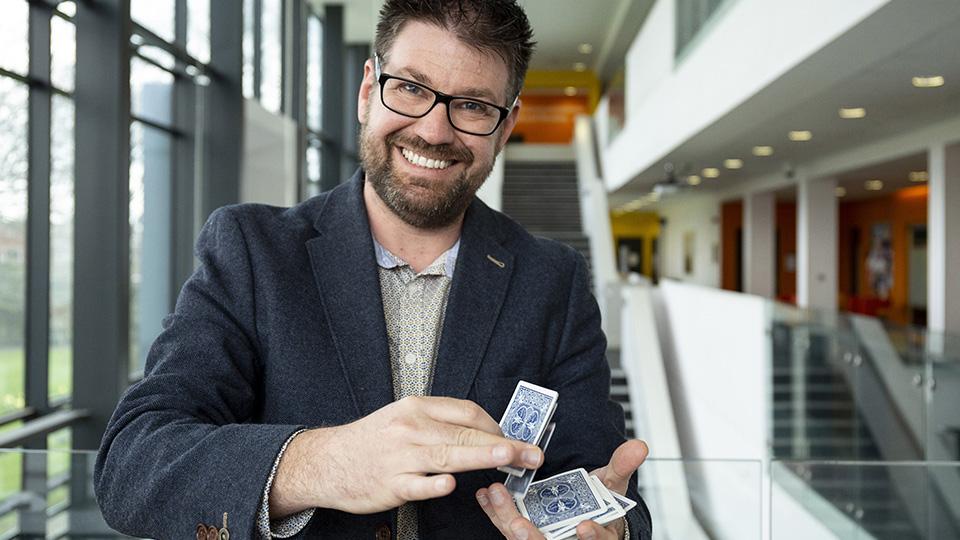Magicians exploit your ‘lazy’ brain in pick-a-card tricks
Primary page content
When asked to choose between four playing cards on a table, two-thirds of people will choose exactly the same one, research into how magicians manipulate audiences shows.

Dr Gustav Kuhn demonstrates a card trick
A new Goldsmiths, University of London study proves what magic professionals have long known: the majority of people will pick the card in front of their hand, simply because it is the easiest one to reach.
Over centuries, magicians have developed powerful cognitive tricks to misdirect audiences or covertly influence spectators’ choice.
In pick-a-card tricks, an audience member might think they have selected a random card, but in reality, the magician has forced the card by positioning it in a specific way, increasing the chance that it will be chosen.
Led by Dr Gustav Kuhn, a research team worked with 60 participants at Tsinghua University.
They found that when four cards are lined up in a row, 66% of people will pick the third card from their left. This is significantly higher than chance, which would be 25% for each of the four cards in a four-card line-up.
However, the third card from the left bias only worked for participants who selected the card with their right hand. Those who used their left hand tended to prefer the card that was immediately in front of this hand instead.
After selecting a card, participants were asked how free they felt about their selection. Almost all participants were completely oblivious to the ‘placement force’ – they had no idea that a magician had led them to make an unconsciously biased choice through strategic physical positioning of the cards.
The research team also found that participants had a ‘moderate’ (5.5/10) sense of wonder when the prediction of the magician matched their choice of card. This was caused by people vastly underestimating the percentage chance the magician would get it right (35% compared to 66%).
Dr Gustav Kuhn, Reader in Psychology, said: “Prior research has shown that people are more likely to select an object from the middle of a row, and they’re also more likely to select objects that are convenient to reach. Essentially, we’re quite lazy.
“We’ve shown what magicians and those who make decisions about supermarket shelf stacking, have long known: our behaviour and decisions are remarkably predictable, and driven by unconscious mental processes.”
Forcing you to experience wonder: Unconsciously biasing people’s choice through strategic physical positioning by Gustav Kuhn (Goldsmiths), Alice Pailhes (Goldsmiths) and Yuxuan Lan (Tsinghua University, Beijing, China) was published in the journal Consciousness and Cognition on Friday 28 February 2020.